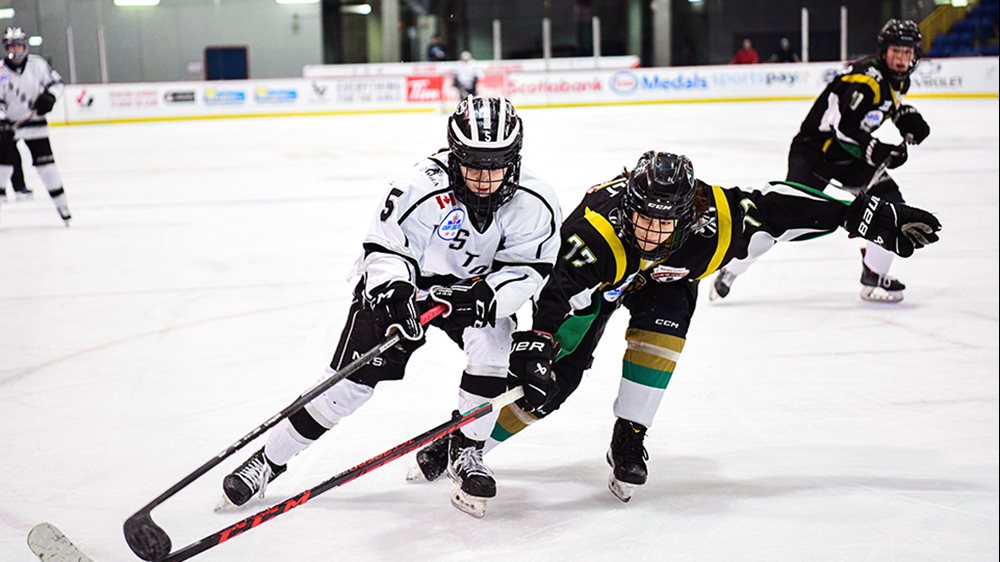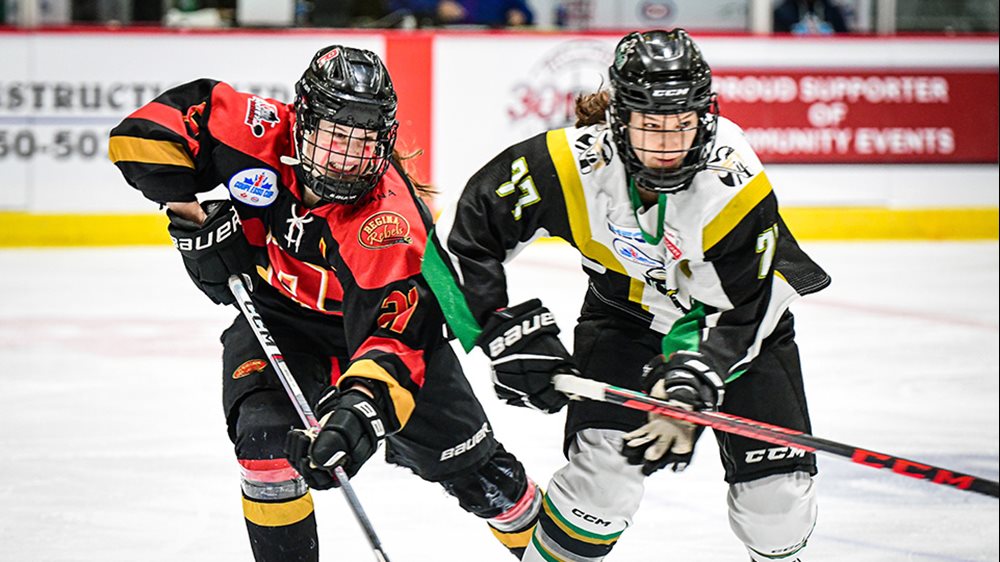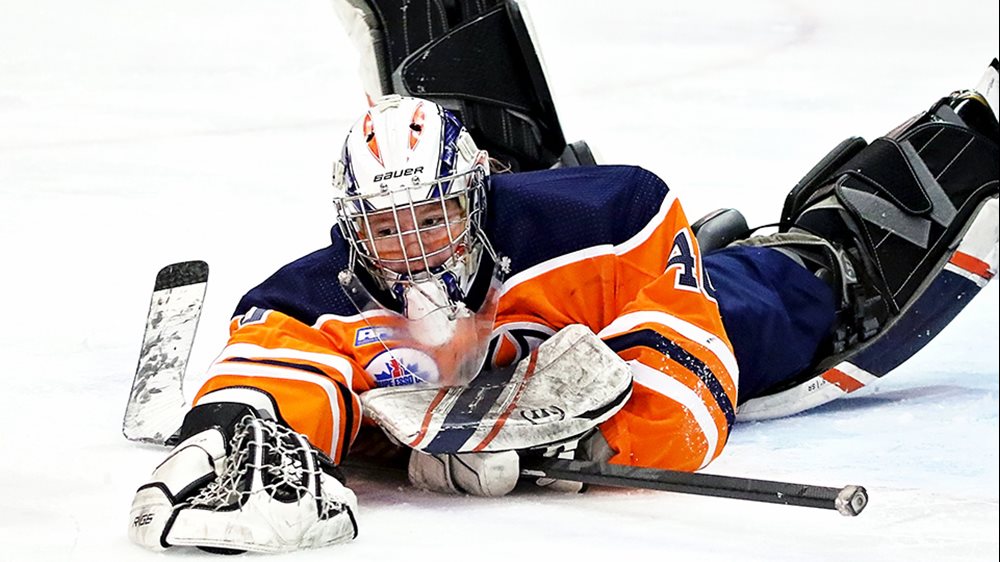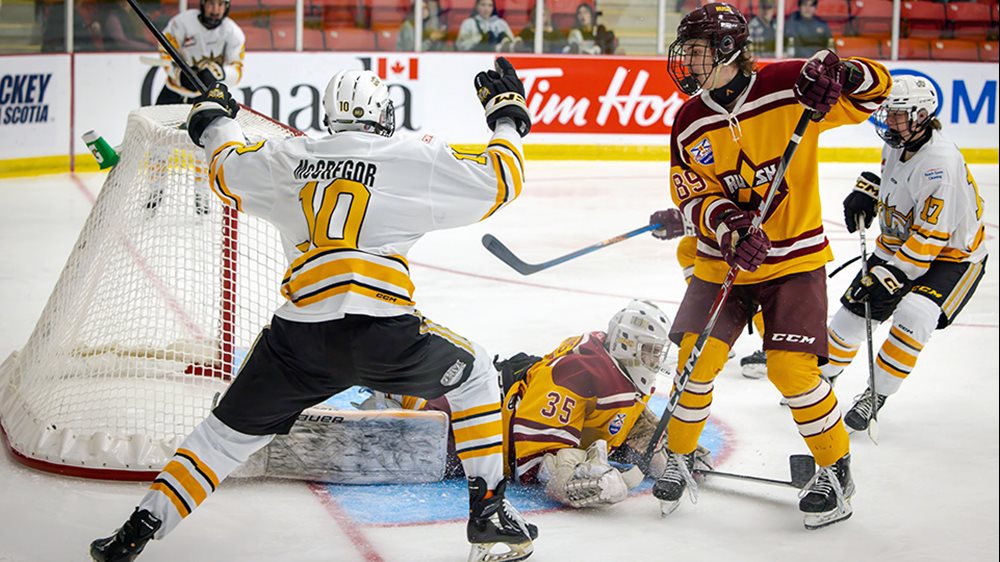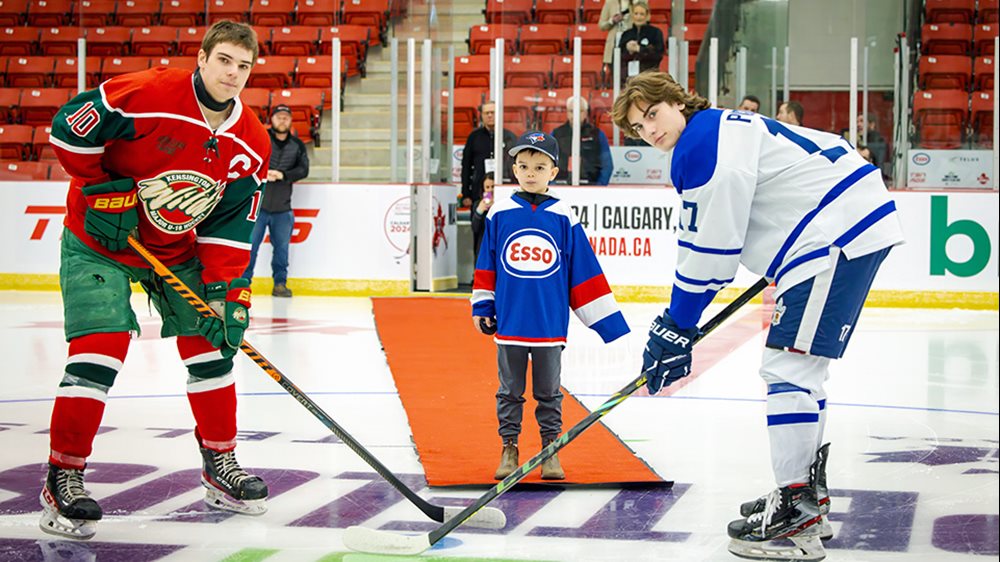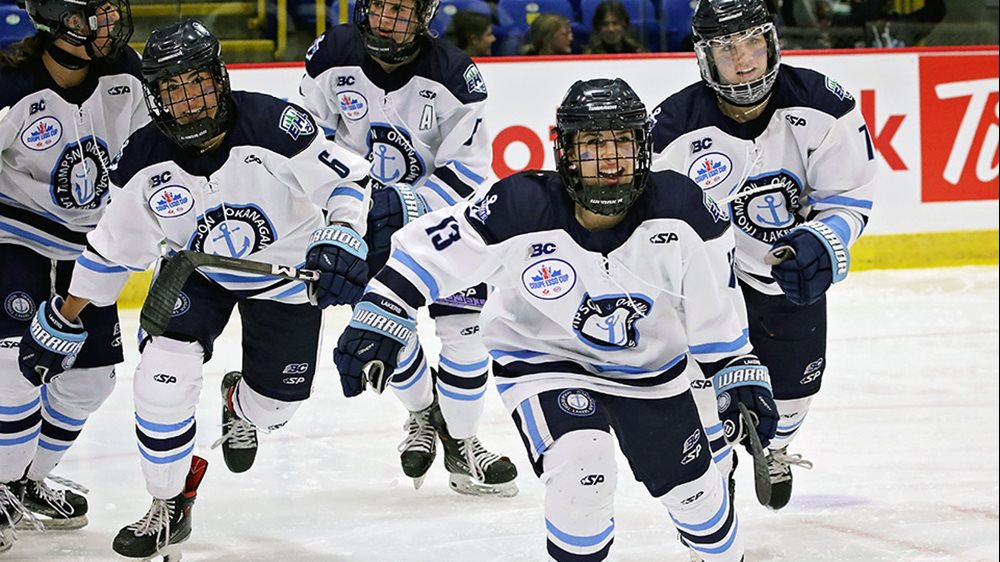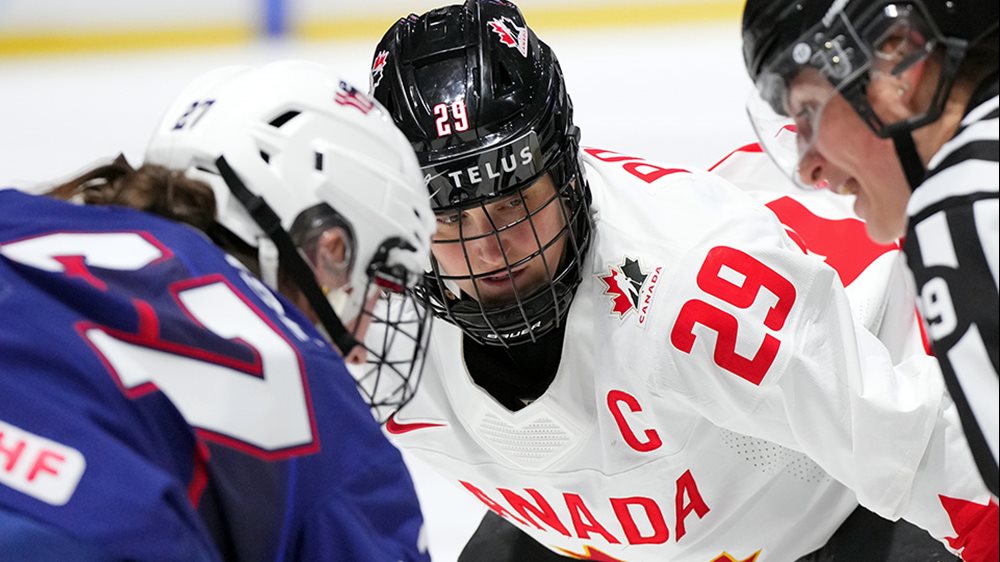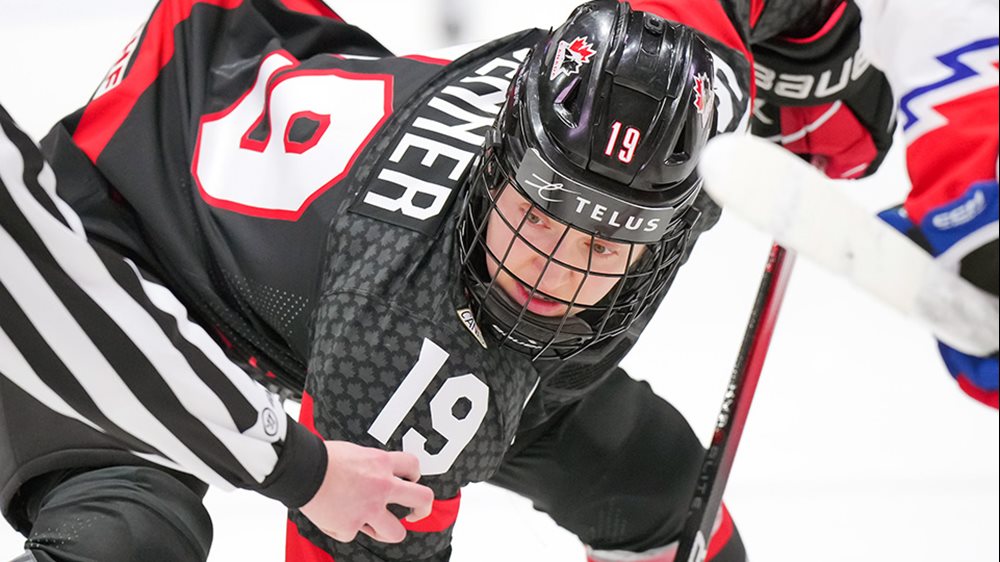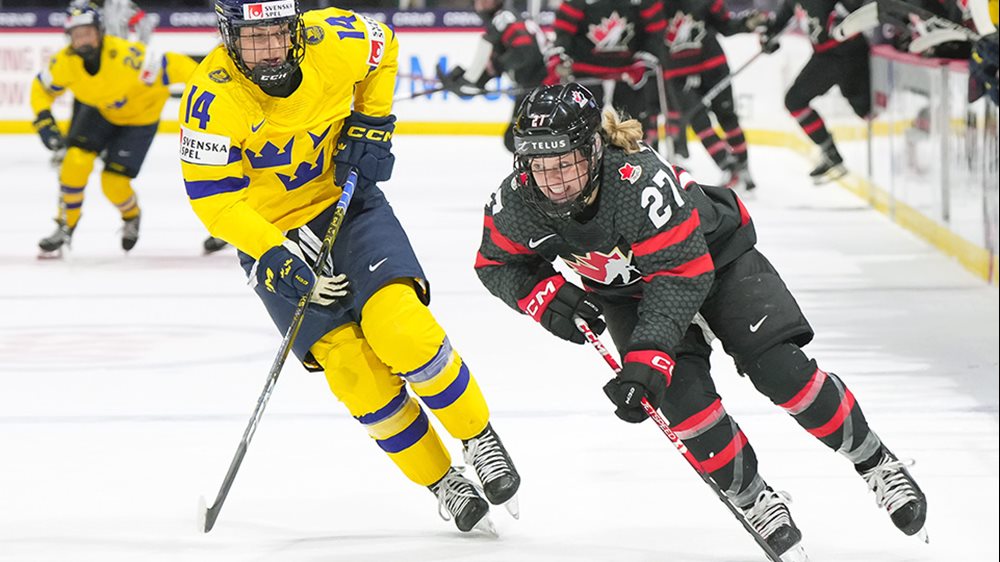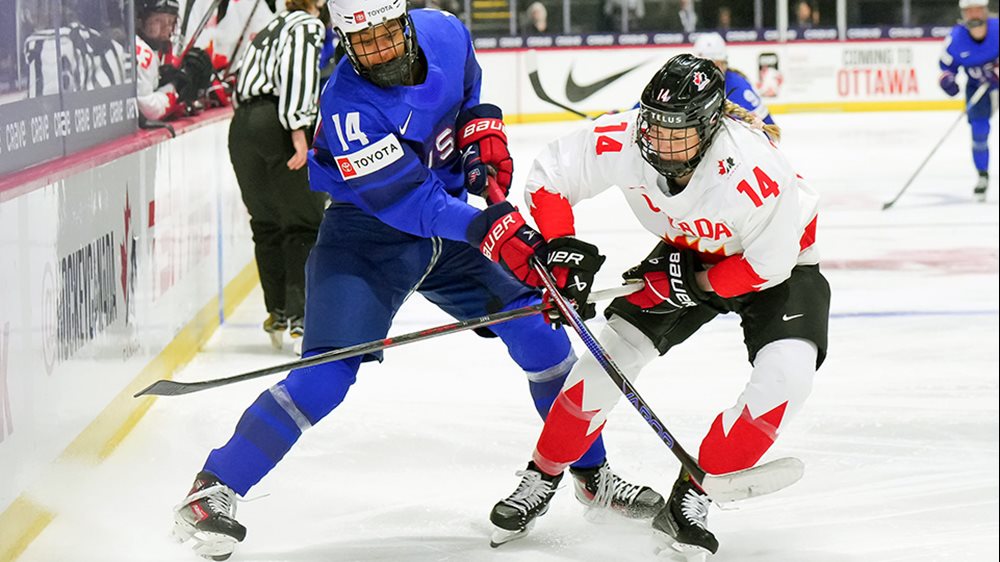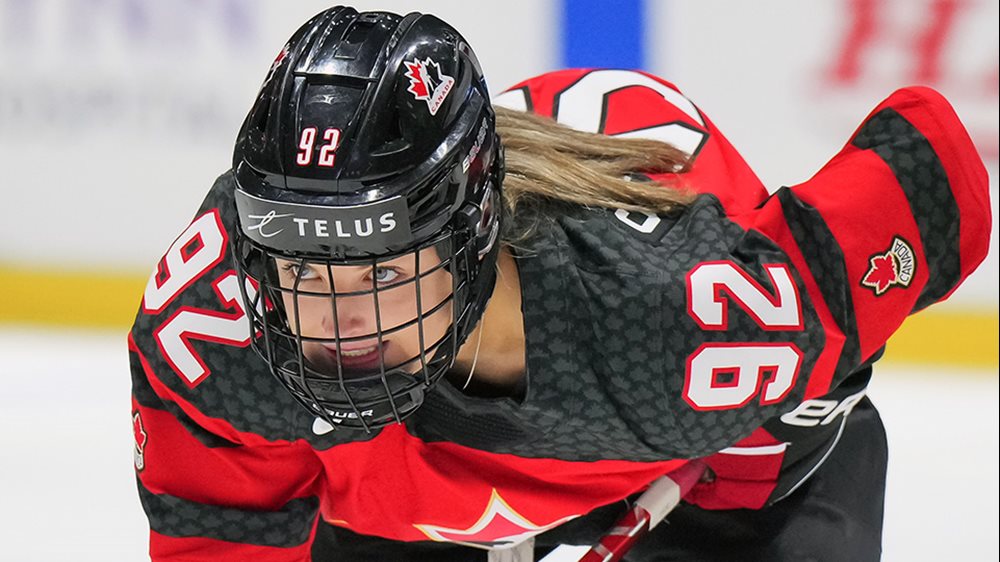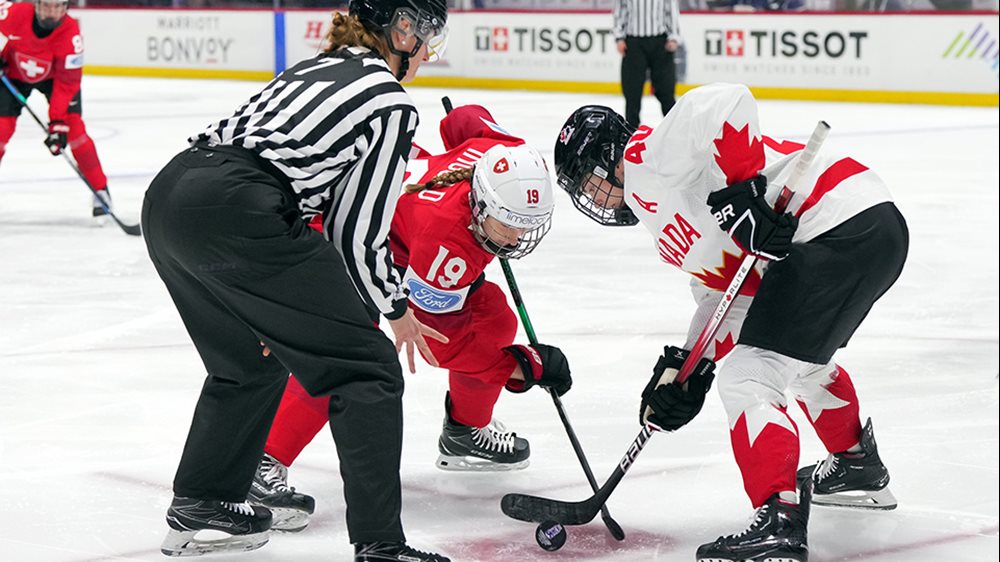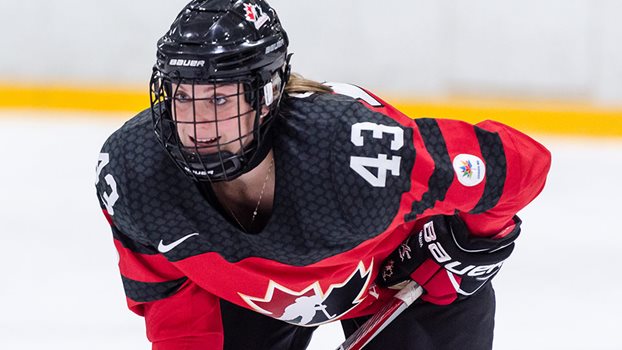
Building on bloodlines
Her great-grandfather is an NHL legend and her great-uncle wore red and white at the Olympics – now Laura Stacey wants to write her own hockey story
The opportunity is right there in front of Laura Stacey.
She can feel it, she can taste it. The Kleinburg, Ont., native has a chance to crack Canada’s National Women’s Team, compete at the 2018 Olympic Winter Games and, in the process, carry on a family tradition of hockey excellence that dates back to the 1920s.
“It would mean the world to me,” says Stacey. “It’s hard to put into words. It gives me shivers thinking about the fact that I have the opportunity in front of me. Every time I put that jersey on with the Maple Leaf, it’s an absolute honour. Being able to wear it in PyeongChang would be the pinnacle.”
Stacey’s hockey journey has taken her from minor hockey rinks throughout Ontario, to NCAA Division 1 hockey with Dartmouth College, to the bright lights of Team Canada and, now, to the prelude to the main event.
But the path Stacey is on goes back generations, as her hockey bloodlines run deep. Her great-grandfather was King Clancy, who played in the NHL from 1921-37 and was named one of the 100 Greatest NHL Players.
As a young girl growing up in hockey, Stacey had this image of her great-grandfather. He was (and still is) an icon to her. But it has been in recent years that Stacey has wanted to learn more about him.
She wore No. 7 throughout her college career in honour of Clancy, for whom the number hangs in the rafters of the Air Canada Centre in Toronto. And after wearing No. 43 for her first nine games with Canada’s National Women’s Team last season, including her first world championship, she’ll make the change to No. 7 this year.
“I feel like now, because he’s becoming a role model for me, I want to be able to continue that legacy that he has created,” says Stacey. “In order to do so, it was important for me to know more about him as a person. I don’t just want to know his stats, or about who he was on the ice. It’s important for me to know who he was as a person. This whole idea of carrying on his legacy and following in his footsteps has become more important to me.”
Stacey has heard stories from family members on just the type of person King Clancy was off the ice. She mentions his generosity and the fact King, on pay day, would share some of the money he made from the game with rink staff who he saw each and every day. Stacey laughs at one of her favourite stories, which is that he was traded from the Ottawa Senators to the Leafs for ... a horse.
“The owner of the Leafs at the time won a bet on a horse race and used that money to get my great-grandfather to come to the Leafs,” she says. “It just shocks me because the amount of money that’s being spent in the NHL today compared to horses back when he was playing. I guess horses were a pretty big part of his childhood growing up. He used to shoot hockey pucks of horse manure because there were no pucks in his yard. It’s funny stories like that.”
The Clancy legacy didn’t end in hockey with King. His son, Terry, carried the family name and played 93 NHL games. Terry, though, left his biggest mark on the international game, competing for Canada at the 1964 Olympics in Innsbruck, Austria.
That Canadian team, unfortunately, was bumped off the podium in the oddest of ways, when the tie-breaker formula was changed at the last moment. Sweden, Canada and Czechoslovakia were in a three-way tie for silver following a seven-game round-robin. Canada thought it had won bronze based on its goal differential in games versus Sweden and Czechoslovakia, but the IIHF ruled that the tiebreaker would be goal differential in all games, meaning the Czechs won bronze.
Today, Terry is 74 years old and Stacey gets to see her great-uncle at least once a year at the annual Clancy family reunion. Stacey – who has battled through a lot of adversity to get to this stage (including breaking both of her wrists as a senior at Dartmouth) – identifies with Terry.
“He battled through a lot of different injuries and adversity throughout his career,” she says. “It wasn’t as easy in a sense or maybe as straight-forward and linear as my great-grandfather’s career was. That’s also pretty inspiring because (Terry) was a guy that had to deal with a lot of different things and he pushed through.”
Stacey is doing her part to extend her family’s greatness in the game. She has racked up 54 games of international experience, including a U18 women’s worlds gold in 2012, and Meco Cup/Nations Cup titles with Canada’s National Women’s Development Team in 2013, 2015 and 2016.
The fire to make Team Canada, and get the team back on top of the women’s hockey world, burns bright in Stacey.
“The past few years have been a little disappointing in coming up short,” she says. “Right now, it’s just about belief. We know we have the people, the personnel, the plan and everything to achieve greatness and achieve that gold medal.”
For more information: |
- <
- >














